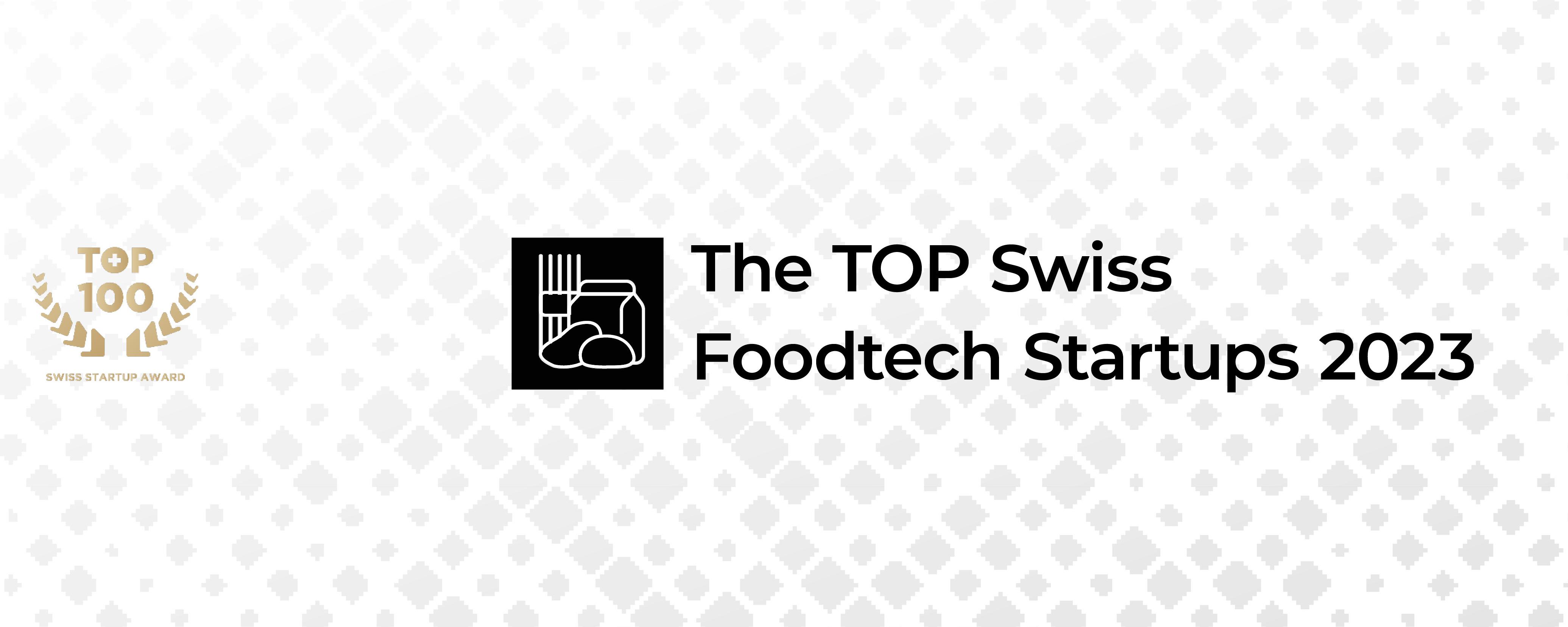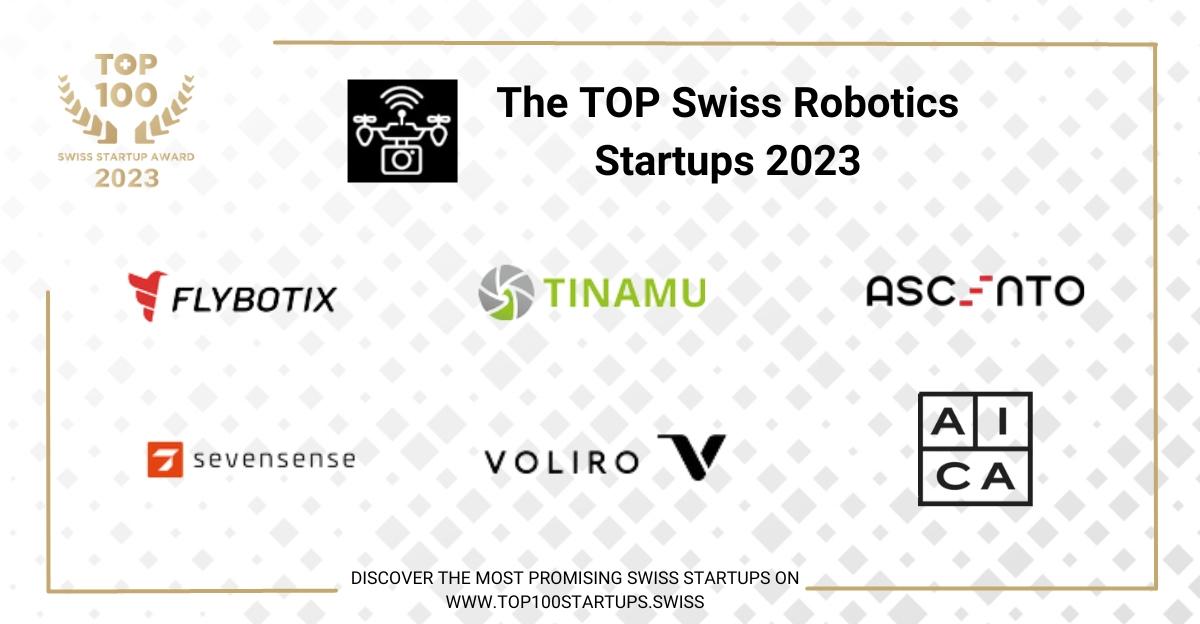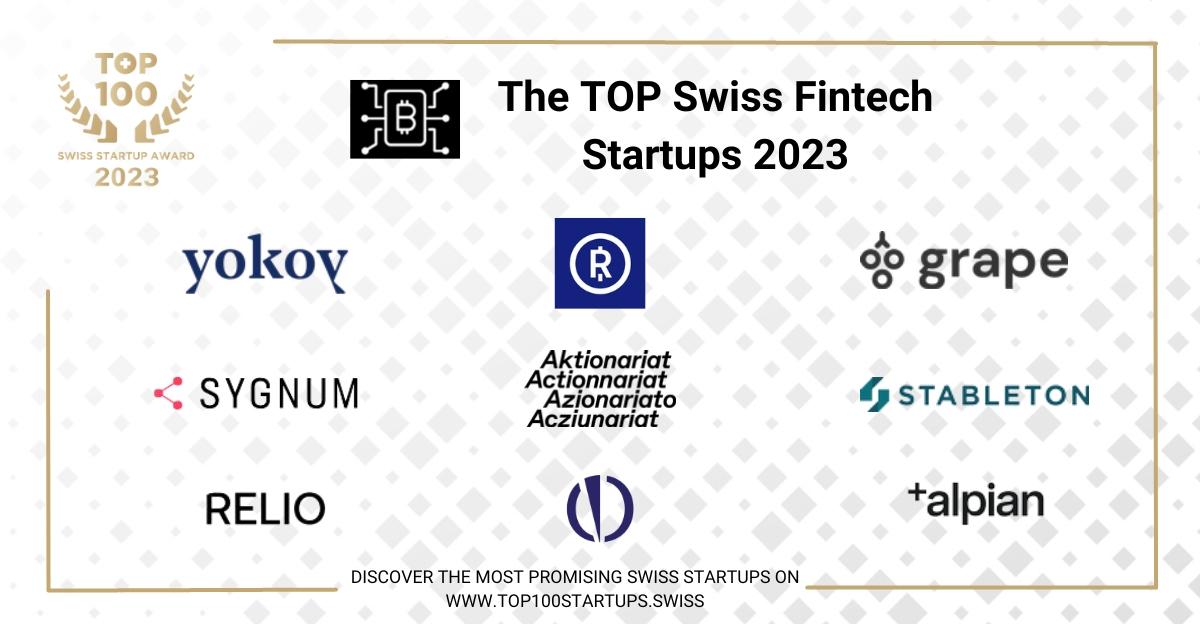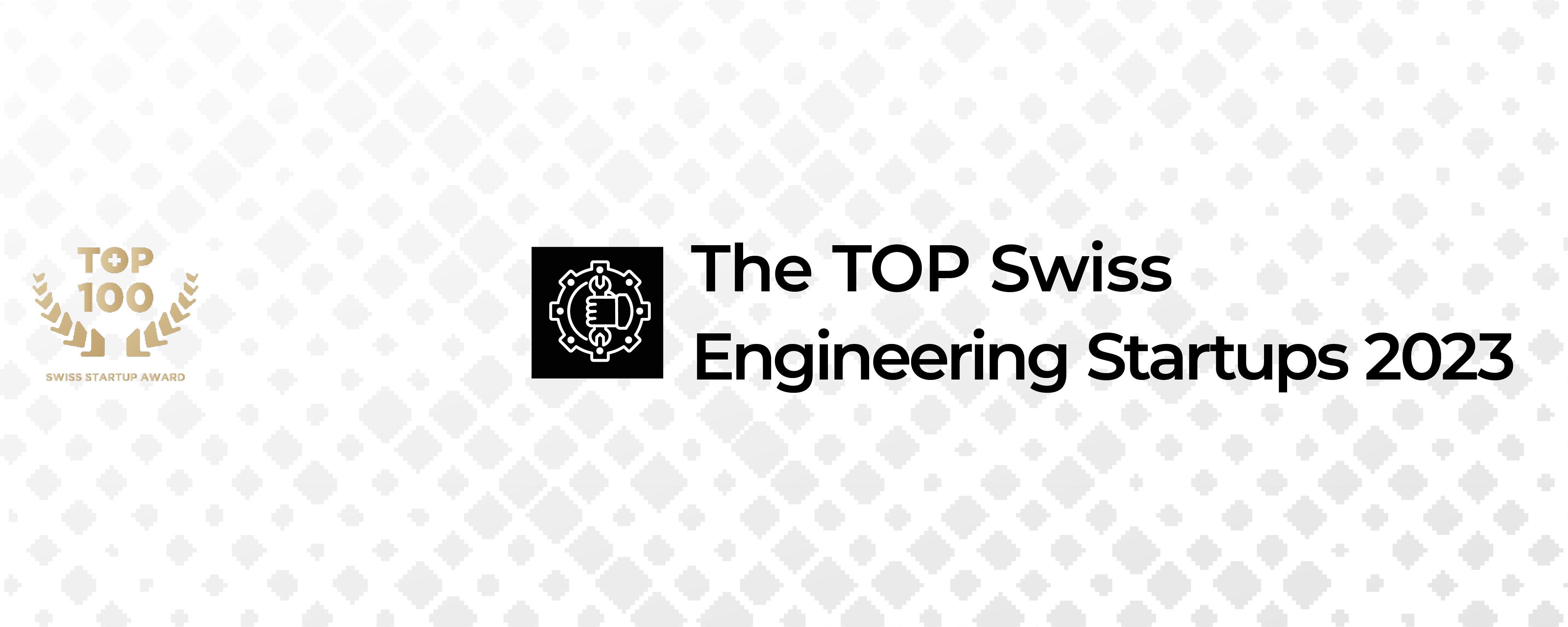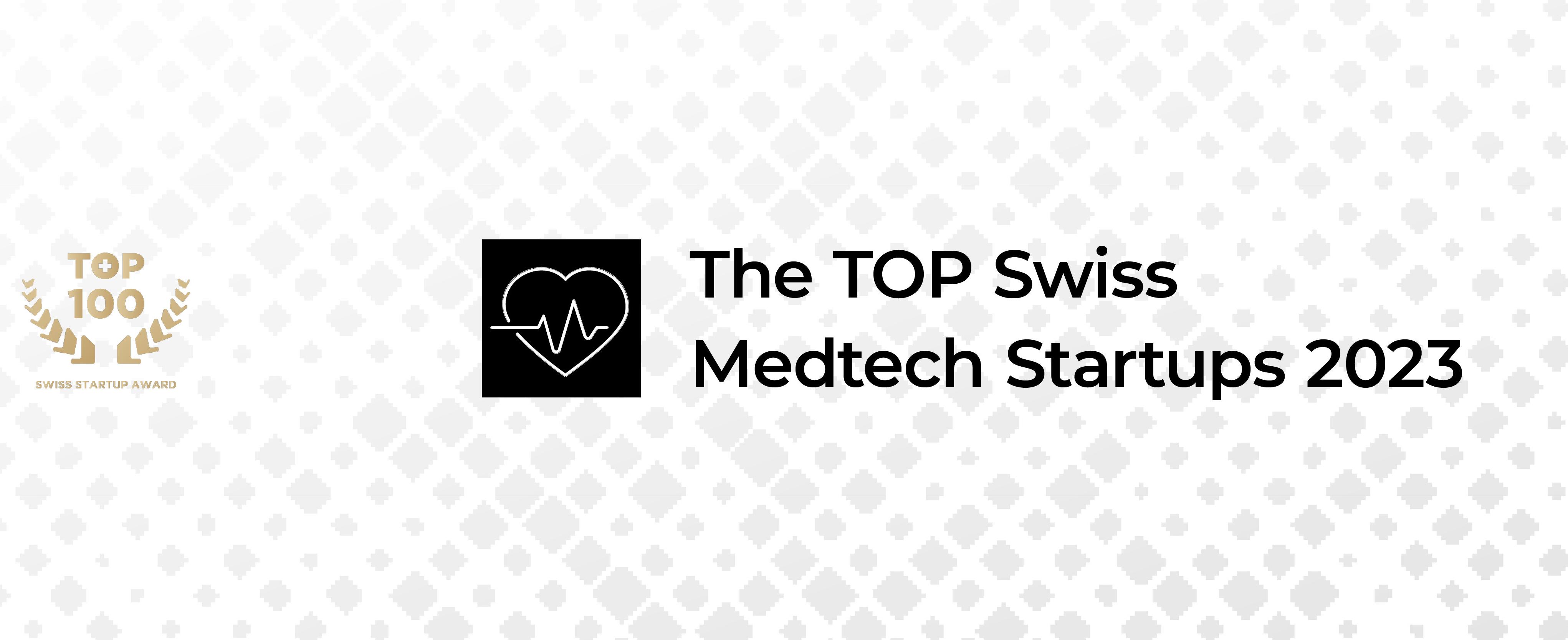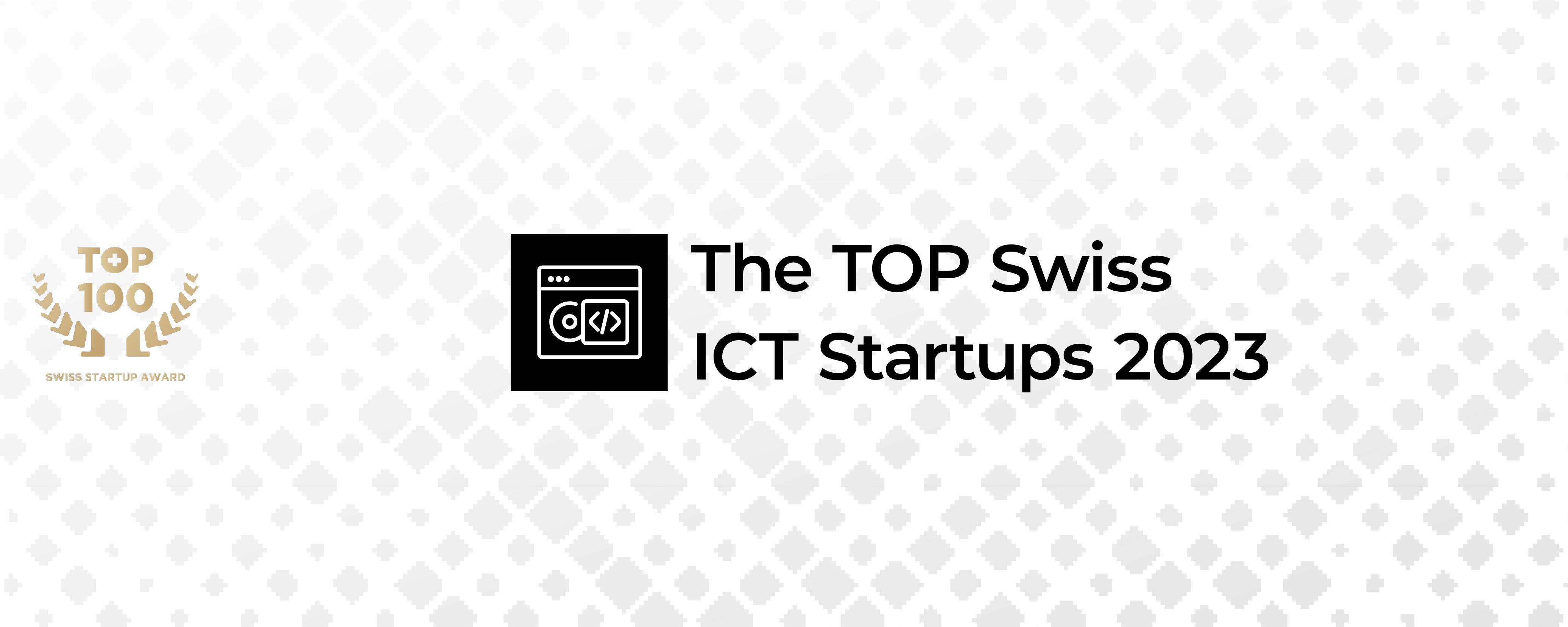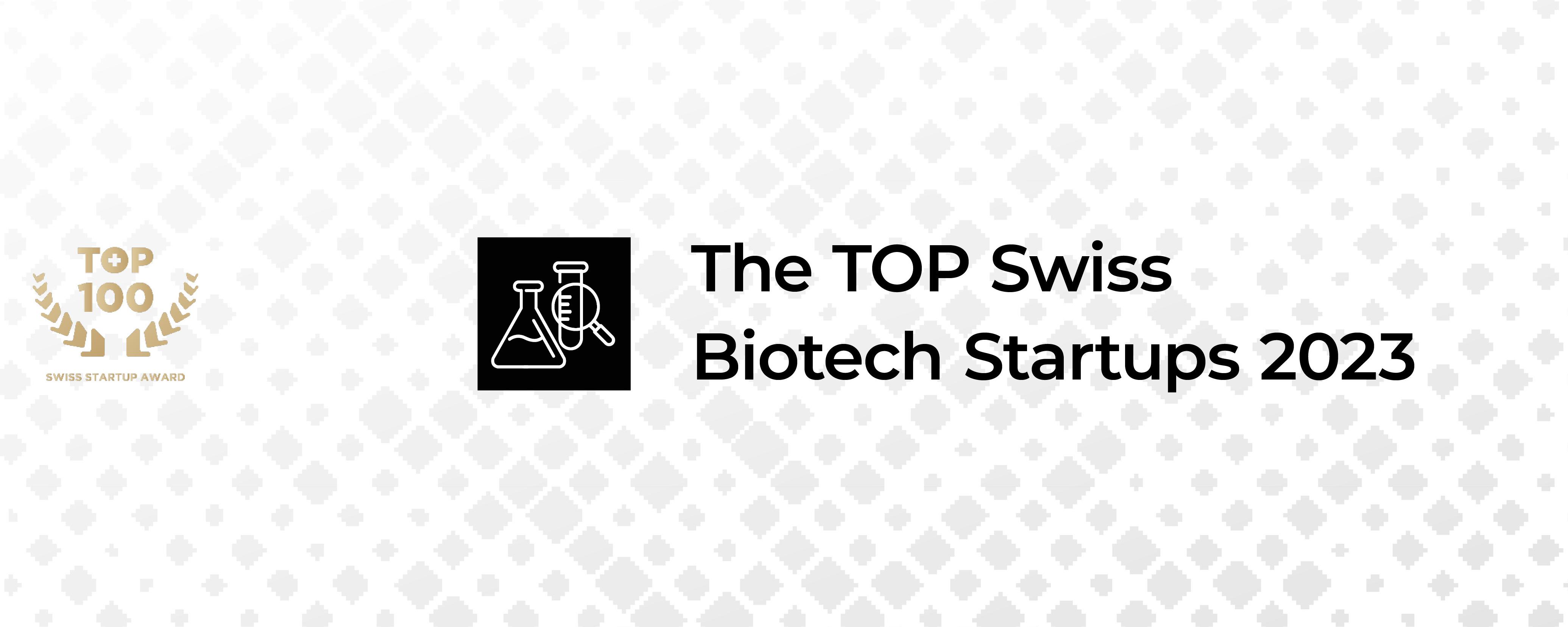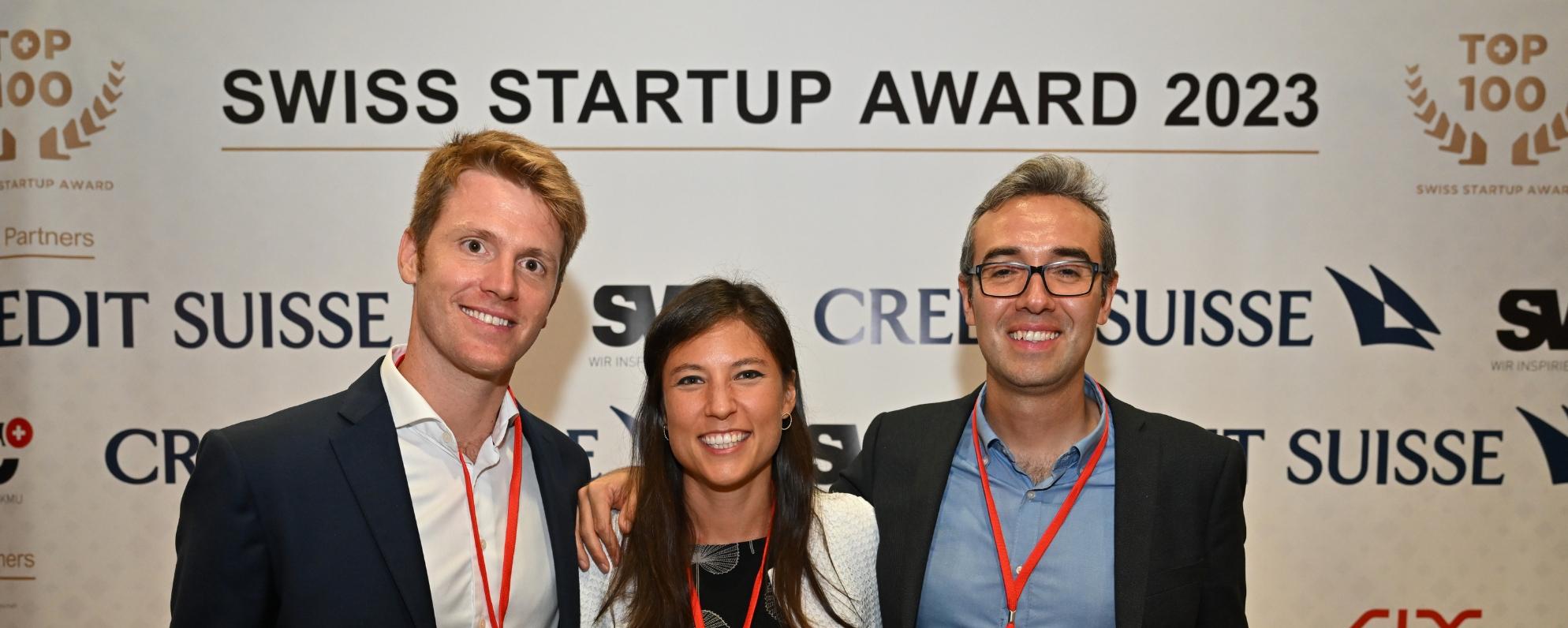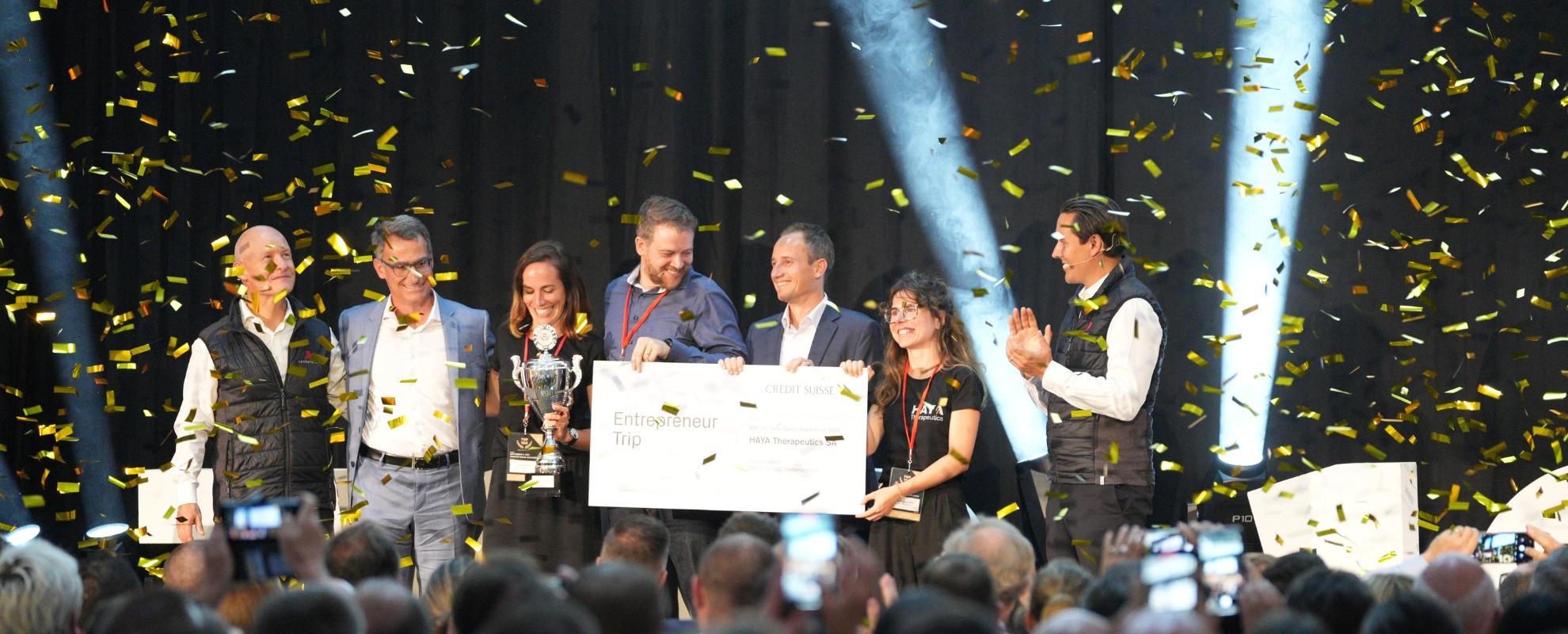The 100 most innovative and promising Swiss startups are picked by a panel of 100 leading investors and industry experts and are revealed at the TOP 100 Swiss Startup Award. Cleantech has this year 17 representative startups in the TOP 100 (including 3 in the TOP 10), confirming a positive momentum that began several years ago and is even stronger in 2023. Learn more about the emerging companies that successfully persuaded both investors and the public with their innovative solutions addressing the most urgent environmental issues of our time.
 The annual ranking of the TOP 100 Swiss Startups has become a benchmark in Switzerland’s startup ecosystem—and beyond. Every year, a panel of 100 leading investors and startup experts chooses the 100 most innovative and promising Swiss startups. Each jury member nominates 10 Swiss startups that are fewer than five years old and show the greatest commercial potential. The first-placed company receives 10 points, the second nine points, and so on. The individual rankings are compiled to generate the final TOP 100 Swiss Startup Award ranking. In parallel, the TOP 100 Public Voting allows everyone with a LinkedIn account to cast one vote and choose the most promising startup per vertical.
The annual ranking of the TOP 100 Swiss Startups has become a benchmark in Switzerland’s startup ecosystem—and beyond. Every year, a panel of 100 leading investors and startup experts chooses the 100 most innovative and promising Swiss startups. Each jury member nominates 10 Swiss startups that are fewer than five years old and show the greatest commercial potential. The first-placed company receives 10 points, the second nine points, and so on. The individual rankings are compiled to generate the final TOP 100 Swiss Startup Award ranking. In parallel, the TOP 100 Public Voting allows everyone with a LinkedIn account to cast one vote and choose the most promising startup per vertical.
Discover the 17 Cleantech startups that impressed the TOP 100 Jury and the public the most with their innovative solutions.
ClearSpace,
#5
Robots are increasingly conquering our everyday lives, whether to make production work easier or as a home assistant when vacuuming or mowing the lawn. But no marketable robot has yet been invented for cleaning up – at least not one that could be used on this planet. In terms of removing space debris, Vaud-based startup ClearSpace is already very close to an operational clean-up robot: co-founder Luc Piguet’s team, which has now grown to about 100 people, is attracting great interest from space organizations and satellite operators alike – and high willingness to pay.
Bloom Biorenewables,
#6
Unlike a few years ago, entrepreneurs are aware that it is their generation that must make the fundamental shift to a fossil-free world. This is exactly where Bloom comes in and provides answers: with a ‘green chemistry’, with molecules from biomass – mainly wood, corn, and straw – that can be used to replace petroleum-based components in plastics, food additives, and cosmetics, or to produce biofuel. Bloom converts biomass into cellulose, hemicellulose, and lignin. The Fribourg-based startup extracts up to 75% of usable material from one tonne of biomass and uses these natural resources in its refinery much more efficiently than was possible with previous technologies.
DePoly,
#10
In Switzerland, 82% of PET beverage bottles make it back into the production cycle thanks to recycling. However, the situation is quite different with other food and non-food packaging made from Polyethylene Terephthalate (PET): they are mostly discarded as waste and then incinerated. Unlike PET beverage bottles, these are usually heavily contaminated and often mixed with other plastics, making recycling challenging. The Valais startup DePoly has taken on this challenge: a process that breaks PET down into its raw materials and at the same time separates it from other substances. The raw materials are then processed in such a way that they are available again in pure form for plastic production.
Exnaton,
#12
More than 15 central European energy suppliers already use the software from ETH spin-off Exnaton. The White Label platform enables companies to organise their end customers within local energy communities or to introduce dynamic electricity tariffs. Last autumn, the climate tech startup, founded in 2020, closed a seven-figure seed round led by Silicon Valley investor True Ventures.
Oxyle,
#32
Traditional water purification systems filter or absorb pollutants. Oxyle’s catalysts, on the other hand, break down the chemical microparticles quickly. Fajer Mushtaq, co-founder and CEO of the ETH spin-off, won the SEF.WomenAwards in the ‘Young Entrepreneur’ category last year. Since Oxyle was founded in 2020, the micro and nanotechnologist has raised more than CHF 7 million in venture capital.
SoHHytec,
#37
The Vaud-based cleantech startup designs, develops, builds, and operates artificial gardens and forests that simultaneously produce hydrogen and green electricity. In early 2022, investors led by the Singapore-based Fund for Sustainability and Energy injected USD 2 million in seed capital.
WattAnyWhere,
#42
With the support of EPFL, HES-SO and industrial partners, the cleantech startup has developed a 300kW mobile generator that uses solid oxide fuel cells (SOFC) to convert pure renewable ethanol into high-power electricity through a chemical reaction. This enables electric vehicles to be charged independently of the grid. WattAnyWhere has raised CHF 1.3 million from global investors in a pre-seed round.
Mobyfly,
#44
The first 10-meter boat from MobyFly stands out from comparable passenger boats in two ways: it ‘flies’ over water at a sufficient speed, and thanks to its battery drive it uses significantly less energy than diesel boats and is practically emission-free. In the first tests on Lake Geneva, the hydrofoil reached speeds of more than 74 km/h; it can also be manoeuvred in water depths of only 50 cm. MobyFly is working on two further boat sizes in parallel.
Freesuns,
#53
Freesuns combines green technology with architecture. The Vaud-based startup designs produces and installs solar roof tiles in a wide variety of shapes and designs for residential and commercial buildings. Its solar power systems can also be installed on listed buildings.
Biosimo,
#56
ETH spin-off Biosimo wants to help the chemical, pharmaceutical and materials industries replace their fossil resources with bio-based chemicals. The startup has developed a novel approach that uses bioethanol to produce bio-acetic acid and its derivatives for the global acetic acid market. At the start of 2023, Sunap became Biosimo’s first customer, using the products in the manufacture of heat storage tanks.
SOLAXER,
#63
The use of solar heat for industrial processes (SHIP) is still in its infancy, with process heat currently generated almost entirely from fossil fuels. That is set to change: Solaxer founders Anna Krammer and Maxime Lagier have developed an absorber coating that increases the efficiency of conventional solar collectors. At the end of 2022, the EPFL spin-off was included in the Gebert Rüf Foundation’s InnoBooster programme.
Perovskia Solar,
#65
The current photovoltaic market is dominated by silicon solar cells. However, their production is energy and resource-intensive, and silicon wafers are produced in fixed shapes and sizes, which limits design significantly. The startup’s technology is based on titanate perovskite and enables cost-effective printing of customized solar cells. Founders Anand Verma and Toby Meyer see great potential in the energy supply of decentralized devices.
LIBREC,
#80
Librec’s technology enables the raw materials in large lithium-ion batteries to be recycled. Last November, the Solothurn-based cleantech startup closed a financing round in the low double-digit millions with German raw materials group Aurubis, Galliker Transport AG and a Swiss family office. The new recycling plant in Biberist will be operational in the second half of 2024.
Composite Recycling,
#82
Glass-fiber reinforced plastic – for example, from old ship hulls or wind turbine rotor blades – usually ends up on land-fills with a significant impact on the environment. Composite Recycling wants to change that: the Lausanne-based startup, founded in 2020, has developed a pyrolysis process that enables the fibres to be released from the composite’s resin and reused.
Enerdrape,
#83
Lausanne EPFL startup Enerdrape uses thermal panels to obtain the heat in underground infrastructures, such as underground car parks, subways, and tunnels. Thus, buildings can be supplied with a renewable source of heat or cooling. In spring 2023, Enerdrape installed 204 such panels in a Coop underground car park. If the results are convincing, the retailer will equip more of its properties.
INERGIO Technologies,
#84
Producing clean electricity where it is needed – this is the aim of the EPFL/HEIG-VD spin-off with its modular, lightweight, and flexible fuel cell energy system. The technology is infinitely scalable, making it suitable for applications ranging from IoT devices and consumer electronics to autonomous robotic systems and vehicle range extensions. Inergio received EUR 1.2 million in Eurostars funding earlier this year.
Plastogaz,
#85
Instead of using heat as before, Lausanne-based startup Plastogaz uses a chemical process to recycle plastics, which requires less energy, costs less and has a better CO2 balance. The process allows Plastogaz to upgrade plastic waste into recyclable raw materials for the chemical industry. In 2022, chemical giant Dow took a stake in the EPFL spin-off.
PUBLIC VOTING:
Voltiris
Voltiris develops the very first photovoltaic modules for glass greenhouses. This innovation allows for double-land use of greenhouses’ surface, generating electricity with no reduction of crop productivity.
The 13th edition of the
TOP 100 Swiss Startup Award 2023 celebrated Switzerland's best startups. Discover the cleantech startups and all the details in the
TOP 100 Swiss Startup Magazine 2023 or follow the hashtag #TOP100SSU on
Linkedin,
Twitter, and
Instagram for impressions.

 The annual ranking of the
The annual ranking of the 
